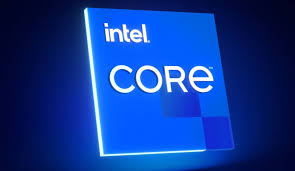
Intel experienced its worst trading day since 1974, with shares dropping 26% on Friday. The significant decline followed the company's announcement to suspend its dividend and reduce its workforce by 15%, as it seeks to recover from losing its dominant position in the global chip market. This decision wiped out over $30 billion of Intel's market value, with shares closing at $21.48, the lowest since 2013.
Bernstein analyst Stacy Rasgon highlighted the severity of Intel's current challenges, describing them as "existential." Despite these challenges, Rasgon noted that Intel could potentially accumulate $40 billion in cash by the end of 2025 through strategic moves, subsidies, and partner contributions.
Other chipmakers also faced declines for the second consecutive day, reflecting broader industry concerns. Market jitters were compounded by weak U.S. employment data, prompting speculation that the Federal Reserve might implement a larger-than-expected rate cut in September.
In the wake of Intel's disappointing earnings report, equipment suppliers like Applied Materials, ASML Holding, and KLA Corp saw their stocks drop by around 8%. The PHLX chip index fell by 5.2%, contributing to a nearly 10% loss for the week. Nvidia, another significant player in the AI processor market, dropped nearly 2%, extending its decline from a record high in June.
Investment strategy analyst Ross Mayfield from Baird expressed concerns over the future pace of investment in AI, especially amid a potentially softening macroeconomic environment. Michael Schulman, CIO of Running Point Capital, noted Intel's decline from its once-prominent position, overshadowed by rivals like Nvidia and AMD.
Intel's plan to invest $100 billion in expanding U.S. factories, supported by $19.5 billion in federal grants and loans, is a crucial part of its strategy to regain its manufacturing edge. However, analysts caution that revitalizing its business and attracting outside companies to use its manufacturing services may take years, impacting profit margins and increasing costs.
The company's recent earnings report has also affected its bond trading, with investors noting higher trading volume and wider spreads on Intel's unsecured bonds, indicating concerns about the company's financial stability.
(Source:www.theprint.in)
Bernstein analyst Stacy Rasgon highlighted the severity of Intel's current challenges, describing them as "existential." Despite these challenges, Rasgon noted that Intel could potentially accumulate $40 billion in cash by the end of 2025 through strategic moves, subsidies, and partner contributions.
Other chipmakers also faced declines for the second consecutive day, reflecting broader industry concerns. Market jitters were compounded by weak U.S. employment data, prompting speculation that the Federal Reserve might implement a larger-than-expected rate cut in September.
In the wake of Intel's disappointing earnings report, equipment suppliers like Applied Materials, ASML Holding, and KLA Corp saw their stocks drop by around 8%. The PHLX chip index fell by 5.2%, contributing to a nearly 10% loss for the week. Nvidia, another significant player in the AI processor market, dropped nearly 2%, extending its decline from a record high in June.
Investment strategy analyst Ross Mayfield from Baird expressed concerns over the future pace of investment in AI, especially amid a potentially softening macroeconomic environment. Michael Schulman, CIO of Running Point Capital, noted Intel's decline from its once-prominent position, overshadowed by rivals like Nvidia and AMD.
Intel's plan to invest $100 billion in expanding U.S. factories, supported by $19.5 billion in federal grants and loans, is a crucial part of its strategy to regain its manufacturing edge. However, analysts caution that revitalizing its business and attracting outside companies to use its manufacturing services may take years, impacting profit margins and increasing costs.
The company's recent earnings report has also affected its bond trading, with investors noting higher trading volume and wider spreads on Intel's unsecured bonds, indicating concerns about the company's financial stability.
(Source:www.theprint.in)














